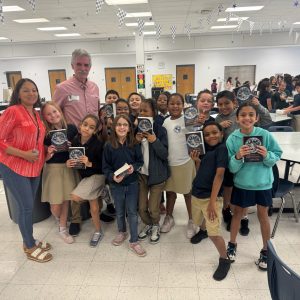Despite advances in technology, dictionaries never go out of style
I own an up-to-date laptop computer that gives me access to millions of websites; it`s an item that was literally science fiction. One writer named Murray Leinster predicted both personal computers and the Internet in his short story `A Logic Named Joe,` published by Astonishing Science Fiction magazine back in March 1946. He also predicted all of the benefits and minuses of information on demand.
Today many homes have Internet access that allows users to look up almost any definition or spelling. It`s easy if you don`t mind combing through a tidal wave of paid websites. Worse, anybody can put most anything on the Internet, so you can`t be 100 percent certain about accuracy.
When I`m unsure about a word`s spelling or definition, instinct still makes me turn away from the computer keyboard and to my trusty, battered dictionary. A dictionary is information technology that doesn`t go out of style.
I was surprised last week to learn that a lot of children who can`t remember a world without computers agree with me.
The third annual Dictionary Project, a collaborative effort between Concord University, Bluefield State College, and the Princeton and Bluefield Rotary Clubs, kicked off last week at Athens School. Third grade students throughout Mercer County will receive a copy of `Webster`s Dictionary for Students.`
The participants hope that getting a dictionary of their very own will help the children foster a love of reading.
Representatives of each entity helping with the project offered some insights to the students gathered in the school`s cafeteria.
Dr. Gregory Aloia, president of nearby Concord University, said he actually enjoys reading dictionaries because he can learn so much. He reminded the children that a dictionary is `something alive` that changes with the English language. For instance, the word `muppet` hasn`t reached most dictionaries yet, but he expected that to happen.
Another local educator, Dr. Albert Walker, president of Bluefield State College, said he still has a dictionary given to him by his grandfather. He asked parents and students to make a pledge to use their dictionaries; after all, it can be fun.
`When we start reading for fun, we`re halfway there,` Walker said.
Charlotte Sacre, president of the Bluefield Rotary Club, said reading opens the mind and allows one to travel to faraway places. Jeff Disibbio of the Princeton Rotary Club reminded the students that `one of the most crucial things you learn is to use words.`
When I spoke to some of the children, they already had plans for their new dictionaries.
`When I`m writing assignments in school, I`ll pull it out and see the words I need,` 8-year-old Matthew said.
Karlei, age 9, said when she needs a word, she gets out the dictionary and finds one.
Their classmate Tara, 9, said she sometimes uses the Internet to look up stuff, but thinks a dictionary is better `because it`s easier to look up, because you don`t have to Google it or anything.`
Nine-year-old Grace agreed that dictionaries have the edge over the Internet `because you don`t have to go through a lot of trouble to get something.`
A lot of the children just love books, period.
`I love dictionaries because it`s fun to learn new words,` said 9-year-old Sidney. `If you have the book, you don`t have to go to every site.`
Her classmates Haley and Nikki had the same reason; they both love dictionaries.
I know the Internet is everywhere and seems to contain everything one needs. But I`m not so sure. A friend of mine in Florida once said: `The Internet is the greatest library in the world, but all the books are on the floor.`
Hopefully real books will never become obsolete. When a book is well made, it stays ready for use long after computer discs and memory cards have been replaced by different models and new technologies. I hope the children who receive these new dictionaries will keep them close by and ready for use.





